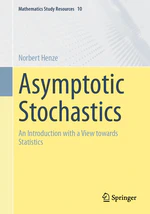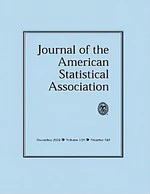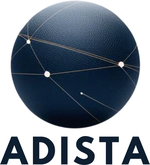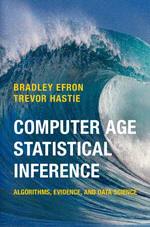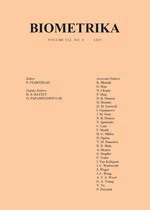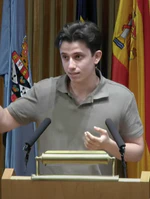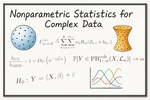Latest News
The next book to be read in the Statistics Reading Group will be Asymptotic Stochastics by Norbert Henze. The book provides a comprehension-oriented, detailed, and gentle introduction to asymptotic stochastics, covering basic, advanced, and current research topics. It does so in a particularly clear and pedagogical style that embraces self-questions, gives historical remarks, and provides numerous examples and solved exercises, thus being a useful resource for lecturers and students.
The paper “On a class of Sobolev tests for symmetry, their detection thresholds, and asymptotic powers”, coauthored by Eduardo García-Portugués, Davy Paindaveine, and Thomas Verdebout, has been accepted for publication in the renowned Journal of the American Statistical Association! The preprint can be checked on the arXiv.
Alberto Fernández-de-Marcos has obtained the Mardia Poster Award for the best poster in the International Workshop on Advances in Directional Statistics (ADISTA) held at the University of Luxembourg from 10th to 12th September 2025. ADISTA is the leading international conference on directional statistics.
The project NSINED (PID2024-158399NB-I00), co-led by Eduardo García-Portugués and Andrea Meilán-Vila, has been funded through the “Proyectos de Generación de Conocimiento 2024” call. The project is developed at Universidad Carlos III de Madrid. Among the researchers within the project are José E. Chacón, Silvia Novo, Rebeca Peláez, Diego Serrano, Ewa Strzałkowska-Kominiak, Iñaki Úcar, and Thomas Verdebout.
The next book to be read in the Statistics Reading Group will be Computer Age Statistical Inference: Algorithms, Evidence and Data Science by Bradley Efron and Trevor Hastie. The book delivers a masterful synthesis of classical statistical inference and modern computational methods, tracing their evolution over the past 60 years. Insightful, rigorous, and historically grounded, it is essential reading to understand the theoretical foundations and algorithmic developments shaping today’s data science.
Diego Serrano has obtained the first award in the Thesis Talk 2025 contest organized by Universidad Carlos III de Madrid. The Thesis Talk is a challenging competition for PhD students to present their research in a 4-minute talk to a general audience, with the goal of making complex topics accessible and engaging.
